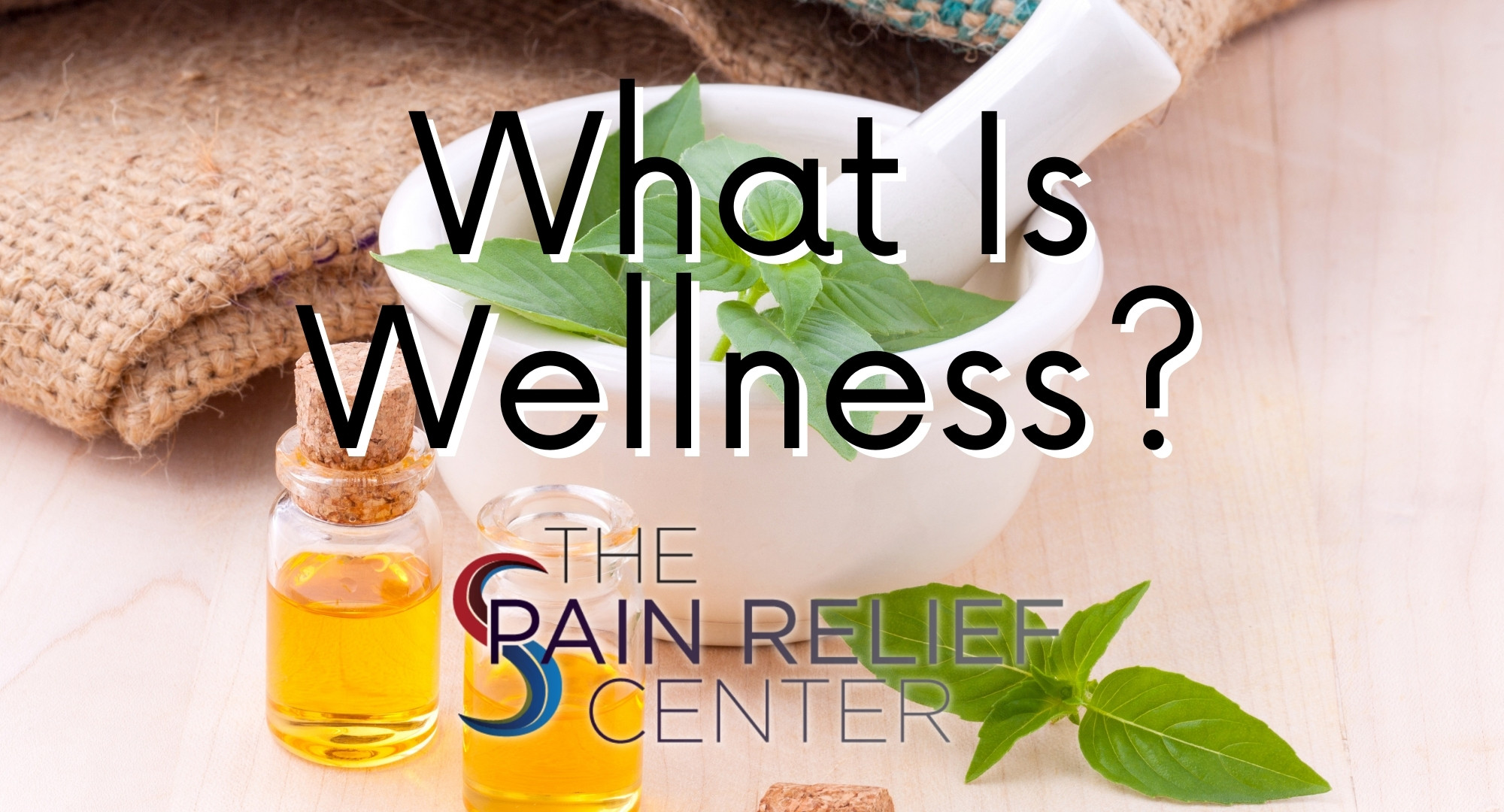Wellness is the state of being in optimal physical, mental, and social well-being. It encompasses all aspects of a person’s health and encompasses self-care practices, healthy habits, and a balanced lifestyle.
In today’s fast-paced world, achieving and maintaining wellness is crucial for overall well-being and quality of life. By prioritizing self-care, making healthy choices, and nurturing positive relationships, individuals can enhance their wellness and live a happier, more fulfilling life. Whether it’s through regular exercise, nutritious eating, practicing self-reflection, or seeking support from others, wellness is a personal journey that requires commitment and intention.
Embracing wellness is about making choices that promote harmony in mind, body, and spirit, ultimately leading to a more balanced and joyful life.
Understanding The Concept
In order to truly embrace a healthy lifestyle, it is crucial to understand the concept of wellness. Wellness goes beyond just the absence of illness; it encompasses the overall well-being of an individual, encompassing physical, mental, and emotional aspects. It is a multifaceted approach that focuses on achieving optimal health and balance in various areas of life. In this section, we will explore the meaning of wellness in detail, examining its different dimensions and the holistic approach it entails.
Defining Wellness
Wellness is more than just a buzzword; it is a way of life that promotes a proactive approach to health. It involves actively making choices that enhance our overall well-being and quality of life. Rather than simply treating symptoms, a wellness-focused lifestyle aims to address the root causes of physical and mental health issues.
Wellness is a dynamic and ever-evolving concept that is unique to each individual. It incorporates a broad range of factors that contribute to our overall state of wellness, such as nutrition, exercise, sleep, stress management, relationships, self-care, and personal growth.
While there is no one-size-fits-all definition of wellness, it can be described as a state of harmony between our physical, mental, and emotional well-being. When we achieve this balance, we experience greater vitality, resilience, and fulfillment in our lives.
The Holistic Approach To Wellness
The concept of wellness is rooted in a holistic approach that recognizes the interconnectedness of various aspects of our lives. Rather than focusing solely on one area, such as physical health, a holistic approach takes into account all dimensions of wellness. It acknowledges that our physical health is deeply influenced by our mental, emotional, and spiritual well-being.
A holistic approach to wellness encourages us to consider the bigger picture and make lifestyle choices that support our overall well-being. It emphasizes the importance of nurturing our mind, body, and spirit to achieve optimal health.
By adopting a holistic approach to wellness, we can cultivate self-awareness, develop healthier habits, and create a balanced and fulfilling life. It allows us to address the underlying causes of any imbalances and promotes long-term well-being.
Rethinking Health And Well-being
Wellness challenges us to rethink our conventional notions of health. It goes beyond a narrow focus on physical health and encourages us to consider our mental and emotional well-being as equally important.
Rather than viewing health as the absence of illness, wellness places emphasis on preventive measures and proactive self-care. It encourages us to take responsibility for our own health and well-being, empowering us to make informed choices that support our overall wellness.
By adopting a wellness-centered mindset, we can foster a deeper sense of self-care and prioritization of our own well-being. It opens the door to a more fulfilling and balanced life, where we can thrive in all areas of our lives.
Importance Of Wellness
Wellness plays a crucial role in our overall well-being and quality of life. It encompasses all aspects of health, including physical, mental, and emotional well-being. By prioritizing wellness, we can achieve a balanced and fulfilling life.
Living a healthy and fulfilling life is essential for our overall well-being. This is where the concept of wellness comes in. So, what exactly is wellness? Wellness can be defined as a state of overall well-being, both physically and mentally. It encompasses various aspects of our lives, including our physical health, mental well-being, and emotional balance. When we prioritize our wellness, we make conscious efforts to take care of ourselves in every possible way, ensuring that we thrive in all areas of life. The importance of wellness cannot be overstated as it directly impacts our quality of life, helps in preventing illness and disease, and allows us to enjoy life to the fullest.
Benefits Of Prioritizing Wellness
Prioritizing our wellness brings forth numerous benefits that enhance our overall quality of life. Let’s delve into some of the key advantages:
Enhancing Quality Of Life
By focusing on our wellness, we can significantly enhance our overall quality of life. When we prioritize self-care, we invest time and effort into activities that promote physical fitness, psychological well-being, and emotional stability. Engaging in regular exercise, practicing mindfulness, and cultivating healthy relationships can boost our happiness and life satisfaction. Taking care of our bodies through proper nutrition and regular sleep will provide us with the energy and vitality to excel in our daily activities. By making small, intentional changes, we pave the way towards a more fulfilling and enriched life experience.
Preventing Illness And Disease
One of the most crucial aspects of wellness is its role in preventing illness and disease. When we prioritize our health and make conscious choices to adopt healthy habits, we give our bodies the tools they need to fight off potential health risks. Engaging in regular exercise strengthens our immune system, improves cardiovascular health, and reduces the risk of chronic conditions such as heart disease and diabetes. Additionally, maintaining a balanced diet high in nutrients helps us maintain a healthy weight and lowers the chances of developing obesity-related illnesses. By prioritizing wellness, we actively work towards minimizing the risk of future health complications and increase our chances of leading a long and healthy life. Overall, the importance of wellness cannot be emphasized enough. It plays a vital role in enhancing our quality of life, preventing illness and disease, and ensuring that we can enjoy life to the fullest. By prioritizing our well-being through healthy lifestyle choices and self-care practices, we pave the way for a happier, healthier, and more fulfilling life journey.
Strategies For Achieving Wellness
When it comes to achieving wellness, it’s important to adopt a holistic approach that encompasses various aspects of our lives. By focusing on healthy eating and nutrition, regular physical activity, stress management and mental health, building strong social connections, and pursuing personal growth and learning, we can pave the way to a well-rounded and fulfilling life. Let’s explore each of these strategies in detail:
Healthy Eating And Nutrition
Ensuring a balanced and nourishing diet is crucial for our overall well-being. By fueling our bodies with the right nutrients, we can enhance our energy levels, support healthy bodily functions, and prevent chronic diseases. Here are some tips for maintaining healthy eating habits:
- Include a variety of fruits, vegetables, whole grains, and lean proteins in your meals.
- Avoid processed foods and excessive consumption of sugary and fatty foods.
- Stay hydrated by drinking an adequate amount of water throughout the day.
- Practice portion control and listen to your body’s hunger and fullness cues.
- Consider consulting with a registered dietitian to develop a personalized nutrition plan.
Regular Physical Activity
Engaging in regular physical activity not only benefits our physical health but also contributes to improved mood, enhanced cognition, and better sleep. Here are some ways to incorporate exercise into your daily routine:
- Find an activity you enjoy, such as running, swimming, yoga, or dancing.
- Set realistic goals and gradually increase the intensity and duration of your workouts.
- Include both cardiovascular exercises, such as brisk walking, and strength training exercises to build muscle.
- Break up sedentary periods by taking short breaks to stretch or walk around.
- Listen to your body and give yourself rest days to prevent overexertion and injuries.
Stress Management And Mental Health
Managing stress and taking care of our mental health is essential for overall well-being. Here are some strategies to promote mental wellness:
- Practice relaxation techniques like deep breathing, meditation, or mindfulness.
- Engage in hobbies and activities that bring you joy and help you unwind.
- Ensure a good work-life balance by setting boundaries and prioritizing self-care.
- Seek support from friends, family, or professionals if you’re experiencing chronic stress or mental health issues.
Building Strong Social Connections
Strong social connections have a profound impact on our mental and emotional well-being. Fostering meaningful relationships and social interactions can help reduce feelings of loneliness and increase our sense of belonging. Here are some ways to build and strengthen social connections:
- Spend quality time with loved ones, whether through shared activities, conversations, or outings.
- Join clubs, groups, or organizations that align with your interests and values.
- Volunteer in your community to connect with like-minded individuals and contribute to a cause you care about.
- Utilize social media platforms to stay connected with friends and family, but also aim for face-to-face interactions whenever possible.
Pursuing Personal Growth And Learning
Continuously seeking personal growth and learning can help us expand our perspectives, develop new skills, and enhance our self-esteem. Here are some ways to foster personal growth:
- Set goals and regularly assess your progress to track your personal growth journey.
- Read books, listen to podcasts, or enroll in courses to acquire knowledge in areas of interest.
- Embrace challenges and view failures as opportunities for growth and learning.
- Seek feedback from others to gain new insights and improve your skills.
- Engage in self-reflection and journaling to enhance self-awareness and personal development.
Wellness In Daily Life
In today’s fast-paced world, finding balance and prioritizing our well-being can sometimes be a challenge. But incorporating wellness habits into our daily routines is essential for our overall health and happiness. By consciously making choices that support our physical, mental, and emotional well-being, we can create a wellness routine that nourishes and sustains us.
Incorporating Wellness Habits
Building wellness habits is all about taking small, achievable steps towards a healthier lifestyle. Here are some practical ways you can incorporate wellness habits into your daily life:
- Start your day with a glass of water to hydrate your body and kickstart your metabolism.
- Set aside time for physical activity each day, whether it’s going for a walk, practicing yoga, or engaging in any form of exercise that you enjoy.
- Prioritize sleep by establishing a consistent sleep schedule and creating a relaxing bedtime routine.
- Nourish your body with nutritious and balanced meals, incorporating plenty of fruits, vegetables, whole grains, and lean proteins.
- Practice mindfulness and stress-reduction techniques, such as meditation, deep breathing exercises, or journaling, to promote mental and emotional well-being.
Creating A Wellness Routine
A routine provides structure and helps in cultivating healthy habits. To create your own routine, consider the following steps:
- Assess your current lifestyle and identify areas for improvement. What aspects of your well-being need more attention?
- Set specific goals for each aspect of wellness, such as exercise, nutrition, sleep, and stress management. Make sure these goals are achievable and measurable.
- Develop a daily or weekly schedule that includes dedicated time for wellness activities. Treat these time slots as non-negotiable appointments with yourself.
- Experiment with different wellness practices to find what works best for you. Whether it’s practicing yoga, going for a run, or trying out a new healthy recipe, find activities that bring you joy and contribute to your overall well-being.
- Stay consistent with your routine, but also be flexible enough to adapt when necessary. Remember that wellness is a lifelong journey, and it’s okay to make adjustments along the way.
Overcoming Barriers To Wellness
While integrating wellness habits into our lives is important, it’s essential to acknowledge and overcome the barriers that may hinder our progress. Here are some common barriers to wellness and strategies to overcome them:
| Barriers | Strategies |
|---|---|
| Lack of time | Break wellness activities into shorter, more manageable increments. Prioritize the activities that have the most significant impact. |
| Financial constraints | Explore budget-friendly alternatives for wellness activities, such as free online workouts or affordable healthy meal options. |
| Lack of motivation | Find an accountability partner or join a wellness community for support and encouragement. Set achievable goals and reward yourself for reaching milestones. |
Tracking Progress And Setting Goals
Tracking and measuring your progress is crucial for staying motivated on your journey. Consider these steps:
- Keep a journal or use a wellness app to record your daily activities and track your achievements. Celebrate small victories to stay motivated.
- Regularly review and revise your goals. As you make progress, set new challenges to continue pushing yourself.
- Periodically assess your overall well-being to ensure you are on the right track. Adjust your routine as needed to meet your evolving needs and priorities.
By incorporating habits, creating a personalized routine, overcoming barriers, and tracking your progress, you can embark on a transformative journey towards a healthier and more balanced life.


Credit: painendshere.com
Frequently Asked Questions For What Is Wellness ?
Why Is The Wellness Important?
Wellness is important because it allows us to lead a balanced and fulfilling life. It encompasses physical, mental, and emotional well-being, enabling us to thrive and reach our full potential. By prioritizing is, we can enhance our overall quality of life and prevent future health issues.
What Is The Meaning Of Wellness Of Life?
This life means maintaining a state of overall physical, mental, and emotional well-being. It involves leading a healthy lifestyle, managing stress, nurturing relationships, and finding fulfillment in various areas of life. Taking care of oneself holistically contributes to a better quality of life.
What Is The 7 Wellness?
7 wellness refers to seven dimensions of well-being: physical, emotional, intellectual, spiritual, social, vocational, and environmental. It encompasses a holistic approach to health, focusing on various aspects of life to maintain overall wellness. Taking care of these dimensions contributes to a balanced and fulfilling life.
What Are The 8 Definitions Of Wellness?
The 8 definitions of wellness include physical, mental, emotional, social, intellectual, occupational, environmental, and spiritual wellbeing. These factors contribute to overall health and quality of life.
Conclusion
This is a state of complete physical, mental, and social well-being. It is a holistic approach to health that encompasses all aspects of our lives. By prioritizing self-care, maintaining a balanced lifestyle, and engaging in healthy habits, we can achieve optimal wellness.
Remember, it is a journey, and small steps towards wellness can have a big impact on our overall happiness and quality of life. Embrace wellness today and experience the transformative benefits it brings.

